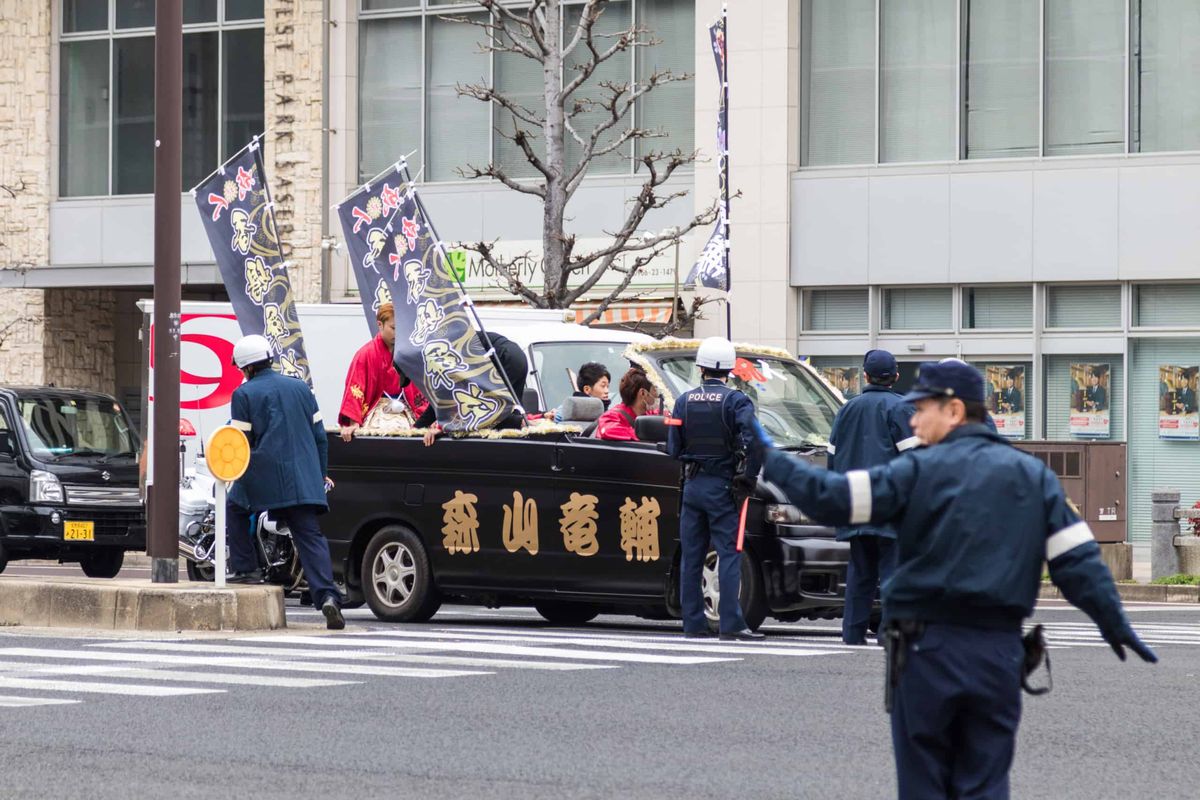12 Weird And Shocking Laws In Japan

What kind of behavior could get you into unexpected trouble on your Japanese odyssey? Let’s unpick some of the most commonly discussed weird laws in Japan – and find out which are true and which are simply urban legends.
Even if you only know a little bit about Japan, you’re likely to have some idea that it’s a nation that likes to do things a certain way. There are rules that one must follow in Japan that might seem a little bit quirky to the foreign observer. However, one of the great joys of visiting the nation is observing a whole country that is so collectively well-organized and ordered – and this is thanks, in large part, to all these little rules.
Many of the laws that govern Japanese society are unwritten. They are simply societal expectations of how people must behave when interacting with others and their environments. There are, however, a number of weird laws in Japan that are eyebrow-raising that are written into the Japanese constitution that you simply wouldn't see in any other country.
What Are Weird Laws In Japan?

1. You can't be fat
Well, okay, this is a bit of an exaggeration. Metabo Law, introduced in 2008 (read more about this here) enforces mandatory waist measurements for citizens between the ages of 40 and 74. If you are found to be above the recommended measurements, your company or local authority could be forced to pay a fine on your behalf.

2. You can't bring medicine to Japan
This is a supposed “law” that I heard thrown around a lot before traveling to Japan – that taking medicine is illegal. It’s not – Japan has a fantastic healthcare system with access to all the wonderful medicines that modern science has to offer. If you insist on bringing medication to Japan, I suggest getting yourself a medicine carrying case and continue reading below for guidelines on what medicine to bring.
Japan is, however, very strict on what medications are brought into the country. You could find yourself in hot water bringing something as simple as an over the counter sinus medication through with you in your suitcase, as there could be illegal amounts of particular ingredients in the Western blends. More on how to navigate these complicated laws here.

3. War is illegal
This is true, in a sense. While Japan can’t control whether or not another country offensively attacks them, it is written into the Japanese constitution since World War II that Japan may not maintain any form of army, navy or air force. The same article renounces the use of force as a means of settling international disputes – so yes, one could certainly argue that war is illegal in Japan under Article 9 of the Japanese Constitution.

4. You can't smoke outdoors
This is another exaggeration that is often thrown around when discussing Japanese law. Foreigners tend to be shocked at the fact that a nation with such a high rate of smokers would forbid outdoor smoking. While it is true that you can’t smoke on the sidewalks in Japan, you will find numerous designated smoking areas in public outdoor areas that you can use to satisfy your cravings. More on that here.

5. You can't make your own beer
This is 100% true. Homebrewing anything over 1% potency is illegal in Japan – but equipment for home brewing is sold openly and is readily available. There is also a thriving homebrew community in Japan that holds regular competitions and tasting events. I’ll leave you to do the math on how rigidly this particular law is enforced by authorities.

6. There are different laws for men and women around remarrying
This is another one of those Japanese laws that sounds crazy and patriarchal from the outset, but actually has a (highly debatable) logic behind it. There used to be a law in place that stated divorced women could not get remarried until six months after their divorce was finalized, while men could remarry instantly. Sounds grossly unfair, right?
The reasoning behind this actually came down to paternity – if a woman remarried instantly after divorce, and then announced she was pregnant, there could be legal grey areas as to who the father of the child was. The six-month rule was to make the paternity clearer cut.
Of course, this law doesn’t correspond to how life actually works – people can have babies without being married, and the person they have a baby with can be someone other than their spouse. This was the argument of a couple who took legal action against the Japanese government on this very law in 2015.
The law was amended in 2016 to state that women may remarry immediately after divorce – unless they are pregnant, in which case they must wait 100 days to remarry. A child born within 300 days of divorce is still legally considered the child of the original husband.

7. You can't clone people
Strangely enough, this is a genuine law in the Japanese Constitution. It was put in place in the year 2000, shortly after the famous cloning of Dolly the sheep in 1996. So no matter how technologically advanced Tokyo becomes, they won’t be making copies of people – at least, not legally.

8. You can go to jail for showing your thighs
This is an actual law in Japan since 1948 – an accidental flash of the thigh area can carry a prison sentence of up to 29 days. However, one only has to walk through the streets of Tokyo to see how unlikely it is for this law to ever be enforced – maid cafes would be out of business instantly for one thing!

9. There was a statute of limitations for murder until recently
This was the case up until 2010 when the law was overturned. The statute of limitations for murder was previously 25 years – which in effect meant if you could cover your crime for 25 years, you could then freely boast about murdering someone without consequence.
In other words, play the waiting game and you could literally get away with murder. The statute being lifted means that Japan can now prosecute for historical murder cases, as is the situation in virtually every other justice system worldwide.
Interestingly, there is still a statute of limitations (increased from 15 to 30 years in 2010) on both sexual assault and crimes that resulted in death.

10. You CAN drink in public
Japan is one of the few countries where it is perfectly acceptable to stroll around with a can of beer in hand, even if the police are walking past. There are vending machines selling alcoholic drinks at many train stations, and it’s totally okay to grab one for your stroll. If you're coming to Japan during the hot summer days, I strongly recommend taking a beer holder with you, especially if you plan on hitting up some festivals during your trip.
That being said, societal expectations do kick in on this one – drinking is usually an evening activity, and being drunk and disorderly on the street is heavily frowned upon. Keep it classy with this law – well, as classy as a vending machine beer can be.

11. You must keep the light on if dancing after midnight
This is a delightfully quirky little law. Night venues won a battle against the government in 2015, as they were attempting to stop dancing after midnight in a bid to reduce levels of prostitution. The compromise they reached? The music can keep playing, but the lights have to be switched on to at least 10 lux.
If you’re out dancing in Japan and you notice the room gets a little brighter around the witching hour, you’re not imagining it – you’re just in a very law-abiding nightclub.

12. You cannot put ice-cream in the mailbox
This is another one of those laws that’s so specific you wonder what the origin of it was. The story behind this law is simple. In 2016, a postal service employee put a chocolate ice-cream in a mailbox. Why this seemed like a good idea to said employee, I cannot tell you – but I can tell you that the government didn’t agree. A law was put in place making this very particular offense punishable by a hefty fine.
So there you have it – a whistle-stop tour of just a handful of the most unique aspects of Japan’s constitution. Hopefully, these help you to stay out of trouble on your trip – remember, don’t start any wars, and don’t put your ice-cream in the mailbox.





